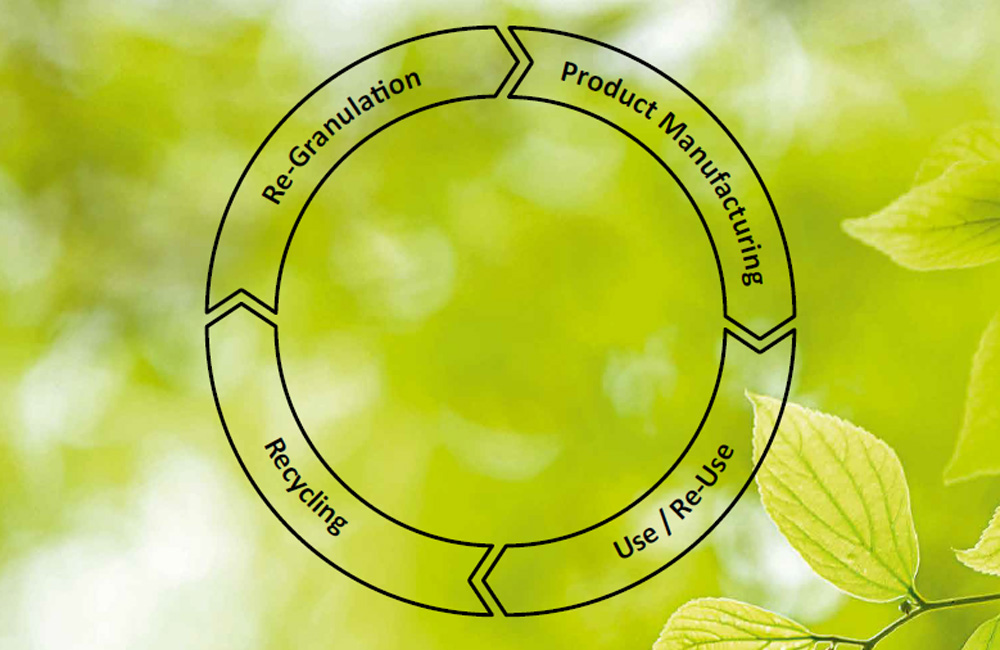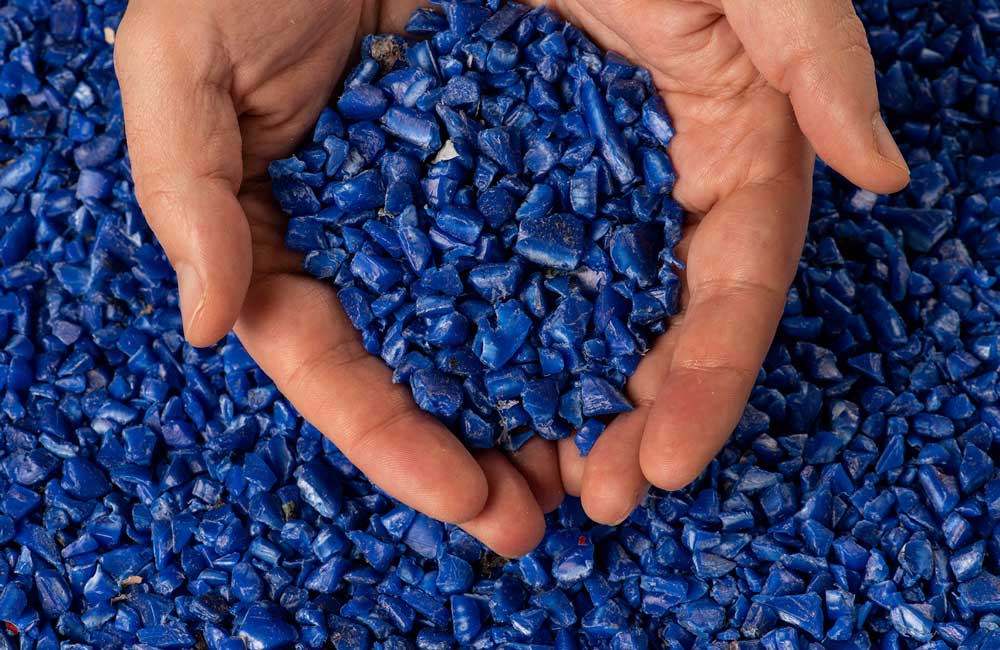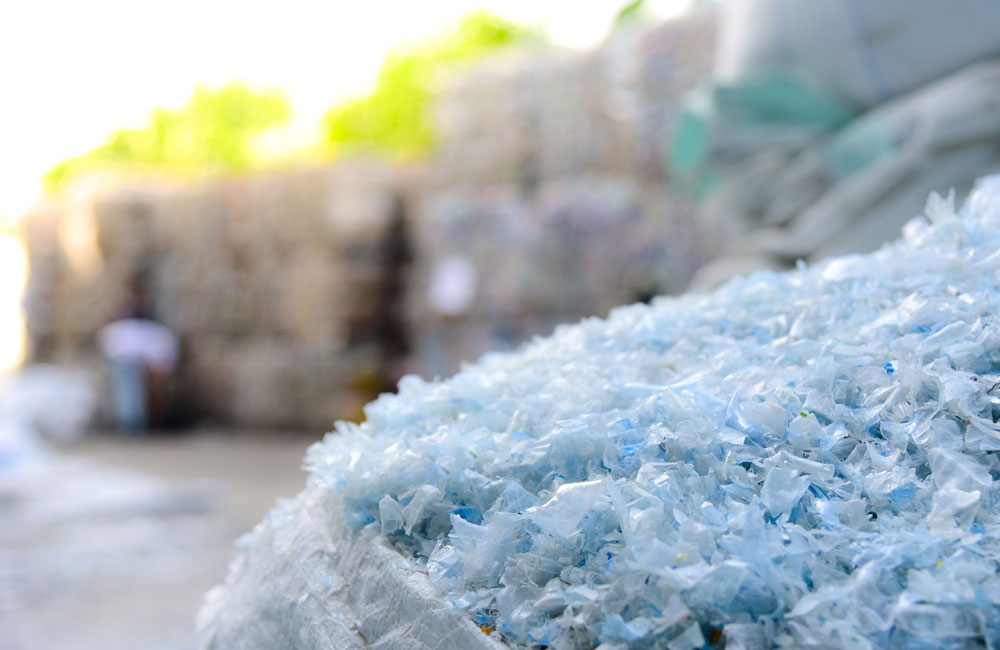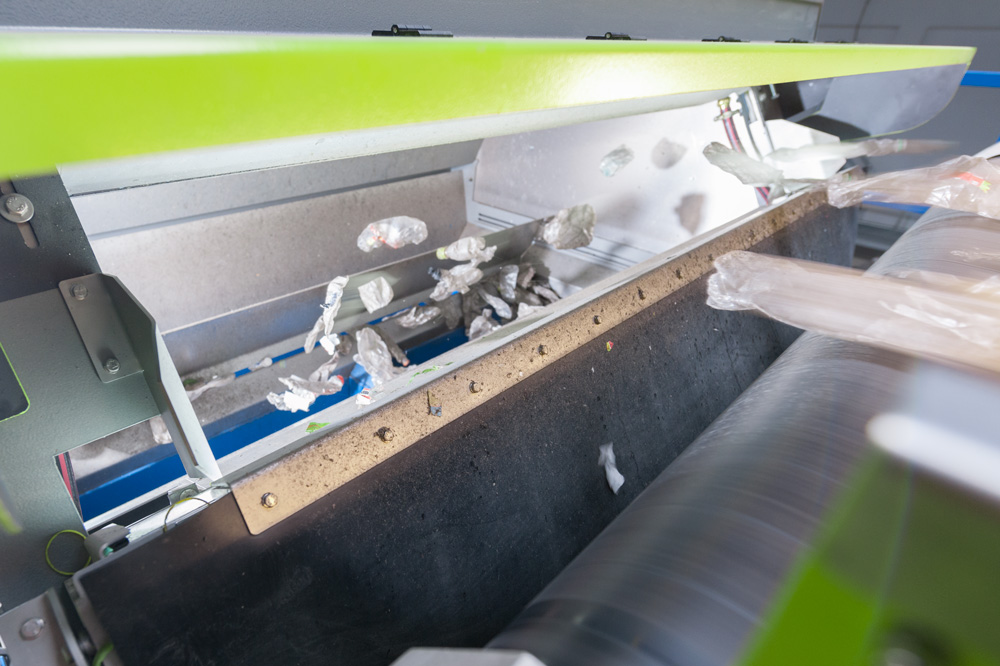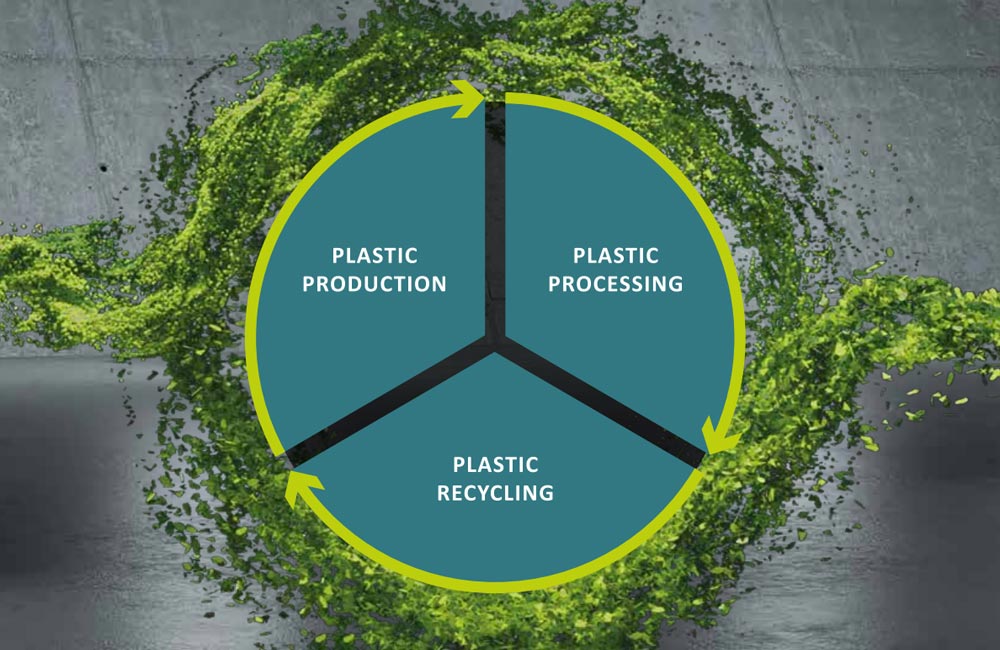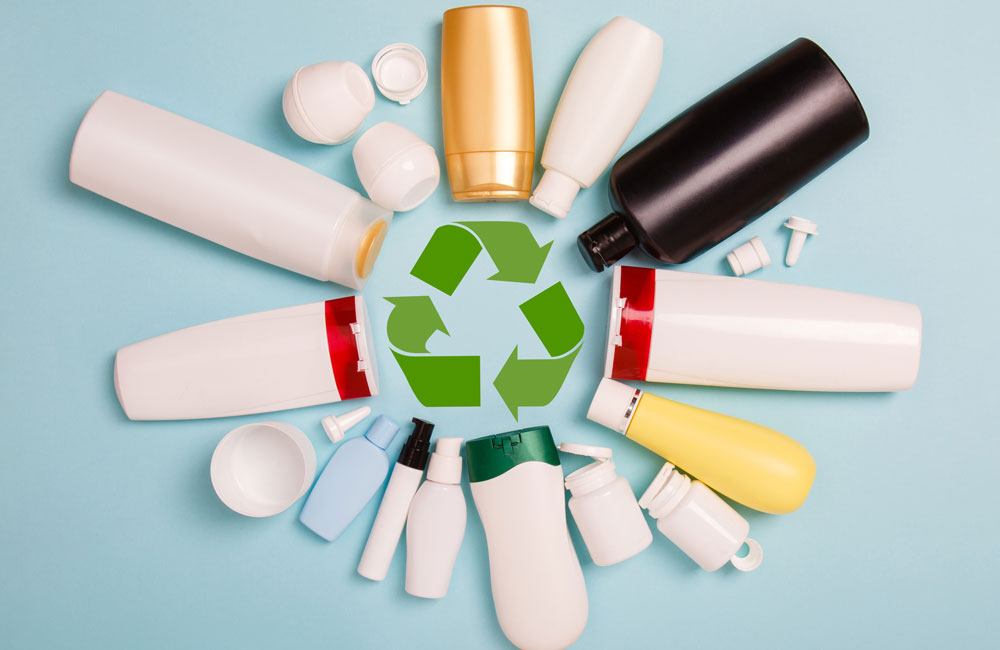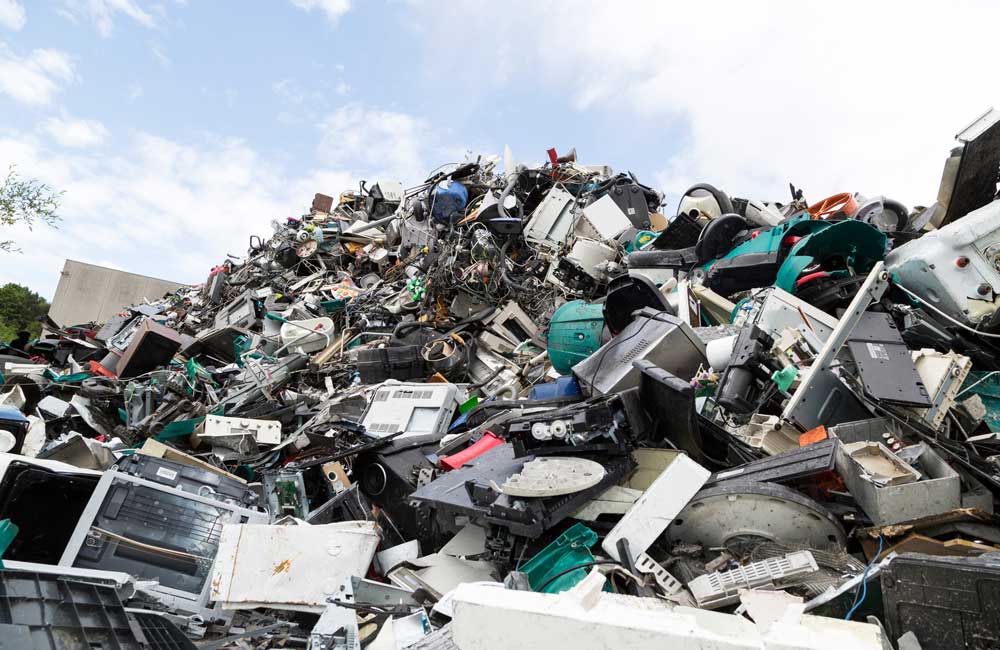Circular Economy
28/07/2020 |
Don’t forget the circular economy
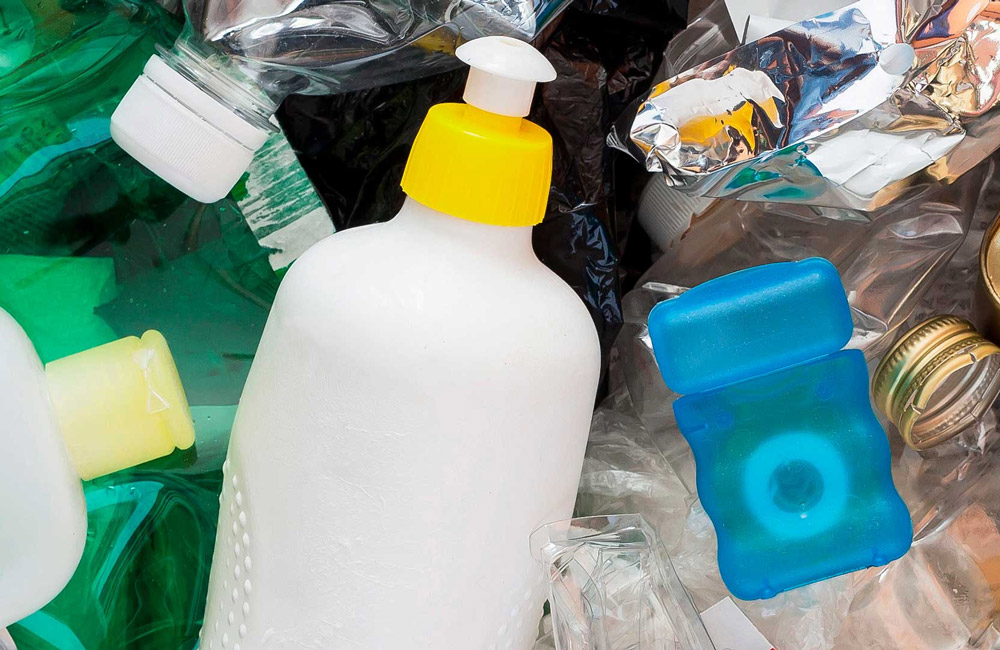
From the compulsory wearing of masks and the use disposable cups to working from home, the coronavirus pandemic has turned life upside down. The effects can also be seen in our rubbish bins. Deutsche Gesellschaft für Abfallwirtschaft, Germany’s association for waste management, expects the volume of household waste to increase by 2.26 million tonnes in 2020, with a large portion consisting of plastics. Reports by Der Grüne Punkt, a leading German recycling company, have shown that the amount of plastic waste in recycling bins has increased by 10% in recent months alone.
Why is that? There are currently millions of people
working from home, buying food that comes in small packaging and ordering
products online, which in turn are packed in plastic. Add to this the fact that
fast food businesses and restaurants often hand out disposable cutlery to their
customers to ensure hygiene standards are met. Hospital and nursing home staff
need more protective clothing these days, much of which is made of plastic.
Following their use, gowns, gloves and masks end up in the bin.
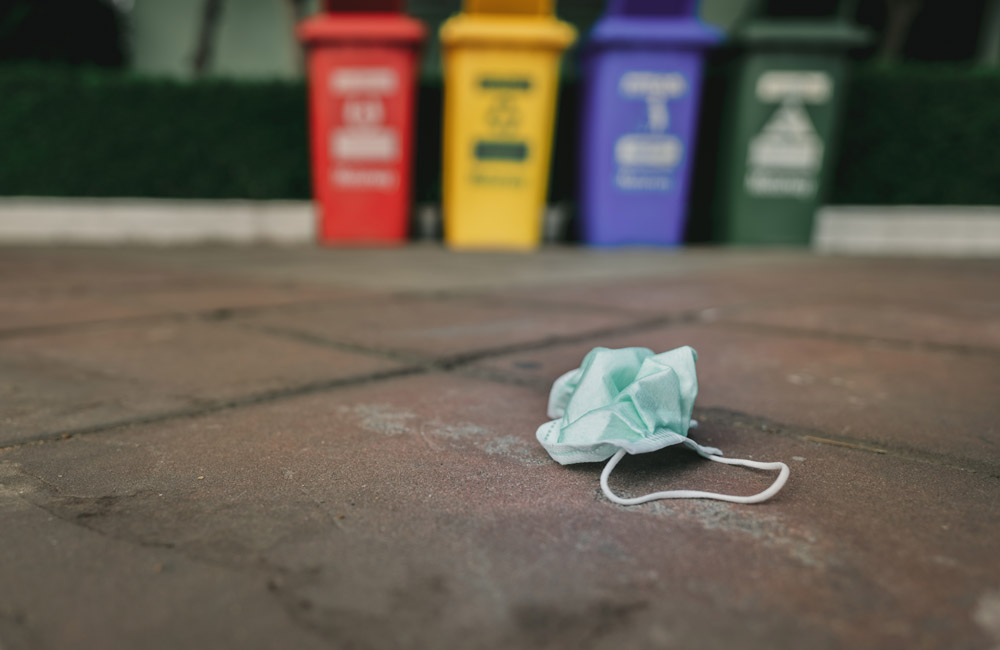
This poses a challenge not just for the environment, but also for the recycling industry. While the mountains of waste keep growing, the number of companies purchasing recyclates is declining. Even higher quality products are not selling due to the price of oil, which has plummeted on account of the economic downturn triggered by the coronavirus. Crude oil is the most important ingredient in the production of plastic, and the low prices make new plastic the cheaper alternative. As a result, more and more companies are foregoing recyclates for new plastics.
The recycling industry faces a setback
These developments mean lower turnover and shrinking profitability for the recycling industry. The plastics recycling industry as a whole faces the threat of a setback, even though consumer sentiment points the other way. According to surveys by the market research institute GfK, consumers regard plastic waste as the biggest problem for their environment, despite the coronavirus and its effects. They expect future solutions that will favour a sustainable economy.
The solutions have been available for quite some time. An efficient material cycle is technically achievable with current means. Used plastic from household recycling bins can be reprocessed to such a high standard that even the strict requirements for the use of recyclates in cosmetics packaging are met.
The effects of the pandemic could destroy everything that has been achieved to date in establishing a plastics cycle. As the amount of household waste continues to increase, so too does the urgency to rethink the way waste is handled. The need for action is obvious. Even before coronavirus, most plastic packaging waste in Germany was incinerated, meaning that there is room for improvement as far as the recycling rate is concerned. A mere 16% of the plastic waste generated in the final stage of consumption is actually processed into recyclate to be reused.
Bernhard Bauske, an expert from the World Wide Fund for Nature (WWF), demands that the burden should not be shifted solely to the consumer – industry and lawmakers must also play a part: “Especially now in a time of crisis, we need a massive shift in direction so as to open up a future that encompasses more resource protection and a circular economy.” Stricter regulations are needed to ensure that more packaging can be recycled, he says. In addition, the German government must promote reusable systems in food services and online retail trade. Germany is one of Europe’s leading producers of waste. In 2017, residents of the country generated 226.5 kilograms of packaging waste per capita, with the EU average standing at 173 kilograms.
Is the circular economy about to collapse?
Der Grüne Punkt, one of Germany’s market leaders for dual systems, sees major problems ahead for the recycling industry in view of the sluggish progress and warns of a collapse. “The extremely low price of oil and the consequences of the coronavirus pandemic constitute a massive threat to all successes and efforts for recycling plastic and retaining it in the circular economy,” says Michael Wiener, CEO of Der Grüne Punkt.
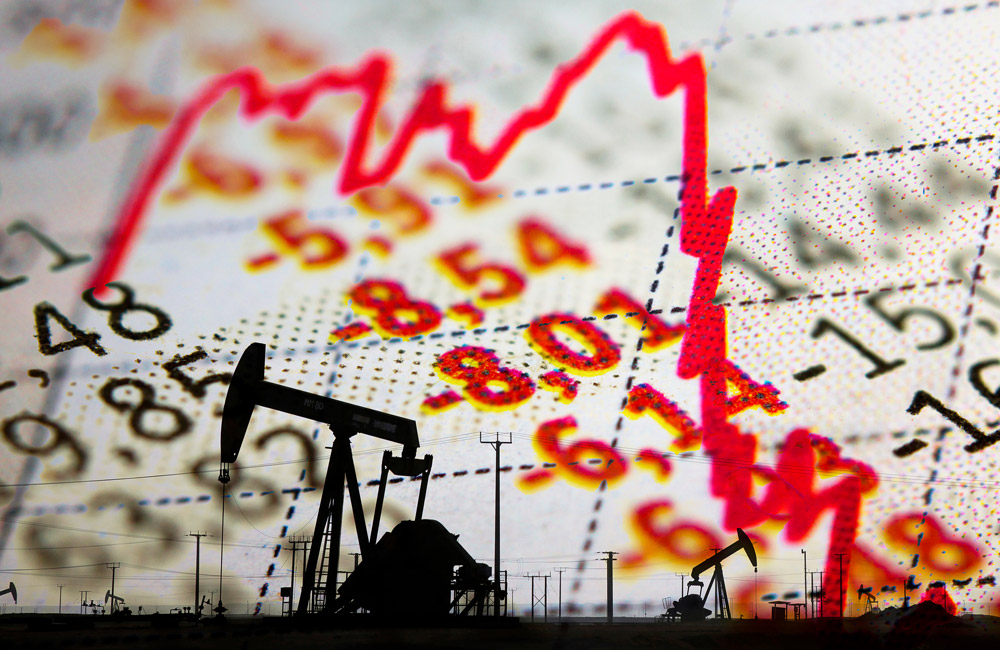
He talks of a market failure at the cost of the environment. Recycled plastic saves up to 50% of the greenhouse gas emissions generated by new plastic. Werner demands that politicians finally create a breakthrough in the circular economy for plastic. In his opinion, companies at risk due to the coronavirus pandemic need to be supported. He recommends abolishing the competitive advantage that new plastics have over recycled plastics.
The age-old problems remain despite coronavirus
There is a risk that politicians and the wider public will focus only on coronavirus and lose sight of the progress made with the circular economy, despite its immense importance for the future of our society due to the integral role it plays in ensuring environmental protection and sustainability.
